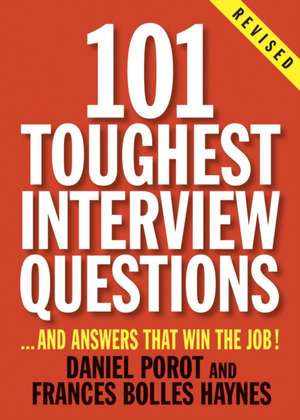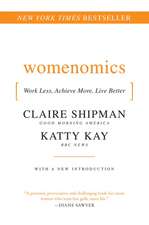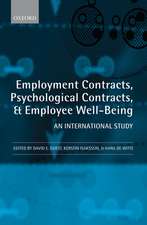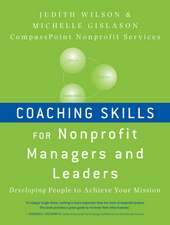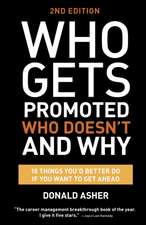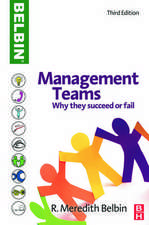101 Toughest Interview Questions: And Answers That Win the Job!: 101 Toughest Interview Questions & Answers That Win the Job
Autor Daniel Porot, Frances Bolles Haynesen Limba Engleză Paperback – 30 sep 2009
Preț: 78.12 lei
Nou
Puncte Express: 117
Preț estimativ în valută:
14.95€ • 15.65$ • 12.37£
14.95€ • 15.65$ • 12.37£
Carte disponibilă
Livrare economică 17-31 martie
Preluare comenzi: 021 569.72.76
Specificații
ISBN-13: 9781580088497
ISBN-10: 158008849X
Pagini: 248
Ilustrații: ONE COLOR
Dimensiuni: 133 x 180 x 17 mm
Greutate: 0.36 kg
Ediția:Revised
Editura: Ten Speed Press
Seria 101 Toughest Interview Questions & Answers That Win the Job
ISBN-10: 158008849X
Pagini: 248
Ilustrații: ONE COLOR
Dimensiuni: 133 x 180 x 17 mm
Greutate: 0.36 kg
Ediția:Revised
Editura: Ten Speed Press
Seria 101 Toughest Interview Questions & Answers That Win the Job
Cuprins
List of Questions vii
Introduction 1
1: Understanding the Interviewer's Concerns 7
2: Formulating Your Responses 14
101 Toughest Interview Questions
Concern #1: Can You Do the Job? 25
Concern #2: Who Are You? 81
Concern #3: Will You Fit In at the Company? 151
Concern #4: What Will You Cost Us? 211
About the Authors 235
Introduction 1
1: Understanding the Interviewer's Concerns 7
2: Formulating Your Responses 14
101 Toughest Interview Questions
Concern #1: Can You Do the Job? 25
Concern #2: Who Are You? 81
Concern #3: Will You Fit In at the Company? 151
Concern #4: What Will You Cost Us? 211
About the Authors 235
Notă biografică
Veteran career experts Daniel Porot and Frances Bolles Haynes also reveal key information that interviewers need to gather from their discussion with you, allowing you to provide the most relevant, strategic responses possible. An invaluable resource for job-seekers at any career stage, 101 Toughest Interview Questions is packed with effective tips and proven techniques to help you perform your best. You'll learn how to thoroughly prepare for the big day, replace anxiety with confidence and poise, and ace even the most nail-biting interview.
Extras
Chapter 1: Understanding the Interviewer's Concerns To ace your job interviews, you need to understand the role of interviewers and what they are trying to accomplish. Sure, they want to hire someone for the position, but they want to hire the right person. It is their goal to make an informed and reasonable decision, so every question they ask has meaning and importance. The questions they ask aren't random; they don't pull them out of a hat and hope that they can divine who is the right person for the job. Every question is designed to illuminate and clarify some piece of information about you so they can determine whether you are the best person to hire. In the broadest terms, every question asked in an interview addresses at least one of the following four main concerns: 1. Can you do the job? 2. Who are you? 3. Will you fit in at the company? 4. What will you cost us? Understanding the subtext of a question can help you customize your responses so you provide the needed information and remain a viable candidate. We have organized the 101 questions into these four concern categories, although many questions could fit into several (or all) of these categories. For instance, an interviewer might ask you, "What is your leadership style?" to find out about the outcome of your previous leadership experiences ("Can you do the job?"), your character traits ("Who are you?"), or how you interact with others ("Will you fit in at the company?"). How you respond will determine how the interviewer interprets and uses the information. As you will see, there is certainly some overlap across the categories; however, it's best to focus on what information the interviewer needs from you rather than which category a question belongs to! Concern #1: Can You Do the Job? Do you have sufficient experience, training, education, aptitude, and interest to be productive? Can you deliver what the organization needs from this position? How has your background prepared you for this job? What have you achieved up to now? What do you know about this job and company? In most interviews, the majority of questions asked are to determine whether you can actually do the job for which you are interviewing. If your answers do not clearly demonstrate that you can do the required tasks, you will likely not be considered a serious candidate for the job. Many questions that assess the extent of your qualifications are of a highly specific nature, differing from job to job and industry to industry, and so are not appropriate for this book. Make sure you are prepared for any job-specific questions that you could be asked. For instance, if you are interviewing for a highly technical job, be ready for technical questions! For a complete list of questions that address the interviewer's first concern, see pages viiߝviii. The primary strategy for dealing with this type of question is to provide concise and concrete information. Be sure to: • Answer with conclusive and clear-cut information. • Offer facts, figures, and statistical proof to support your claims. • Provide examples of your skills and abilities. • Discuss your past experience, summarizing the tasks you can do and have done. • List your strongest skills. • Describe your accomplishments in detail, including outcomes of successful projects, proposals, and so on. • Outline your relevant knowledge. • Describe your education and training. • Illustrate your decision-making skills. Concern #2: Who Are You? What do you like and dislike? What are your main characteristics and traits? What is your personality like? What are your values and goals? In addition to determining whether you can do the job effectively, interviewers want to know who you are. No interviewer will make a decision to hire you unless he or she has a sense of who you are as a person, what you care about, and what motivates you. This information can be even more critical to interviewers than knowing whether you meet every qualification. If they can't get a sense of the "real, authentic you," they will not consider you seriously for the job. For a complete list of questions that address the interviewer's second concern, see pages viiiߝx. The primary strategy for dealing with this type of question is to provide positive and truthful information so you can give the interviewer a "window" into your personality. Be sure to: • Answer with passion. • Share your activities and interests. • Focus on job-related issues when appropriate. • Describe personal achievements and offer examples of personal growth. • Talk about your goals and values. • List your best characteristics and traits. • Suggest an exchange of ideas about a job-related subject. • State any negative information quickly and briefly and move on to another topic immediately. Concern #3: Will You Fit In at the Company? Will you be part of a problem or part of a solution? How do you relate to others? How have you gotten along with others in your past? What do you expect from us? How interested are you in working here? Most employers have had at least one bad experience in the past when hiring someone; they need to know that they won't be making a mistake by hiring you. You must make interviewers feel that the risks to them are very minimal if you are hired. Specifically, you need to reassure them that you will fit in at the company, get along with your coworkers, actively contribute to the company's well-being and progress, and not add to the challenges that they already face. For a complete list of questions that address the interviewer's third concern, see pages xߝxi. The primary strategy for dealing with this type of question is to provide information about how you have reacted in the past and to show there will be no unpleasant surprises from you in the future. Demonstrate that you get along well with others and can relate to people at all levels of the company's hierarchy. Be sure to: • List your interpersonal skills and describe methods you use to deal with people. • Give examples of your interactions with former superiors. • Talk about teams you have worked with and the tasks you accomplished together. • Share positive comments others have made about you. • Discuss other people (such as former colleagues, bosses, or clients) only in positive terms. • Describe how you maintain strong communication within your professional environment. • Show how you have overcome difficulties or challenges in the past. • Explain why you want to work for them. Concern #4: What Will You Cost Us? How much will hiring and employing you cost the company? What do I need to offer in order to get you? What are you willing to trade off in order to work here? If an interviewer can satisfactorily address the three preceding issues and is interested in you as a potential employee, the fourth issue then becomes relevant. An interviewer will only address the cost issue seriously if you are a viable candidate for the job. However, some interviewers may bring up the subject of salary early on to test the waters and find out whether your expectations are compatible with their budget. It's usually a mistake to answer any salary question with a specific dollar figure, especially during the early stages of an interview, when the job responsibilities and tasks not have yet been well defined. For a complete list of questions that address the interviewer's fourth concern, see pages xiߝxii. The primary strategy for dealing with this type of question is to delay discussion of salary until all other issues are settled satisfactorily for both the interviewer and you, the candidate. Once that is done, you must show the value of your contribution. Be sure to: • Research salary figures for the job beforehand. • Postpone discussions about salary until there is a thorough understanding of the job responsibilities. • Do not move to negotiation until a definitive job offer has been made. • Do not be the first to mention a specific salary amount. • Discuss salary ranges rather than specific amounts whenever possible. • Ask questions for clarification and define any vague terms. • List the benefits of value you will accept. • Make sure that you and the employer agree on what constitutes the entire compensation package. • Never lie about past compensation. • Describe specific accomplishments to illustrate your worth. • Link the responsibilities of the job to your value. Chapter 2: Formulating Your Responses Understanding an interviewer's concerns enables you to provide appropriate, useful answers to the questions asked of you. Along with practicing your responses, knowing what information the interviewer needs from you will allow you to approach your interviews with strength and confidence. Keep in mind that every answer you give will tell the interviewer something about you—even remaining silent says something! Some responses are more effective and appropriate than others—depending on the situation, timing, and personality of the interviewer—so it's important that you determine the best strategy to use for the question at hand. Be sure to maintain a balanced approach by using different strategies throughout the interview. For instance, you don't want to make a joke of everything, but neither do you want to appear so serious that the interviewer wonders if you have a sense of humor at all. You don't want to provide lengthy, elaborate answers to every question, but neither do you want your answers to be too brief or simplified. Consider the following fifteen strategies as you contemplate how to respond to specific questions. 1. First and foremost, listen! 2. Provide the most relevant information. 3. Rephrase the question or ask for clarification. 4. Answer carefully or avoid answering altogether. 5. Communicate more than one thing with your answers. 6. Don't volunteer personal information. 7. Be concise. 8. Lose the adjectives—stick with facts and figures. 9. Reassure your interviewer. 10. Use humor when appropriate. 11. Be honest—it's still the best policy. 12. Control your body language. 13. Keep it professional. 14. Smile, relax, and look happy. 15. Ask great questions yourself. 1. First and Foremost, Listen! Don't be in such a rush to prove how bright you are that you don't actually listen to what is being asked. It's easy to jump ahead in your mind and assume that you know what the rest of the question will be, particularly when you are nervous or anxious about how you will respond. You'll end up so busy preparing and rehearsing the answer in your mind that you won't really listen to the interviewer. Listen carefully until the interviewer is through asking the question, then take an extra second or two to collect your thoughts before answering. You won't be judged harshly if you do this; in fact, you might earn a few brownie points if you provide a thoughtful answer to what was actually asked. Be careful not to overlook those two-part questions either. Oftentimes an interviewer will ask a question about a certain situation or behavior and then tack on "Why?" at the end. It's this "Why?" that tends to get neglected in many candidates' answers. Make sure that you fully address the "Why?" so your answer is complete. If you aren't sure you've done that, ask the interviewer, "Did I answer your question?" 2. Provide the Most Relevant Information It's a great strategy to think to yourself every time you are asked a question, "What if this were the only question I get to answer?" Pretending that you have only this one question will help you give the most pertinent, useful information to convince the interviewer that you should get the job. When interviewers say, "Tell me about yourself," what they really mean is "Tell me about your professional self." You might think it's nice to tell them where you were born or what your favorite hobby is, but save that for another time—that kind of information probably won't influence their decision about whether or not they should hire you. Every time you answer a question, ask yourself, "Is the information I am telling the interviewer going to help him or her decide to pick me for this job?" Make sure the answer is yes. 3. Rephrase the Question or Ask for Clarification Not every question you are asked must be answered immediately. Sometimes it's reasonable to wait to respond, particularly when this brief delay will clarify exactly what kind of information the interviewer is seeking. If a question is very general or vague, you can say, "Could you please be more specific?" or "I'd be happy to answer that, but first may I ask you _______?" Some interviewers will purposefully be vague in their wording to see how you will respond. If that happens, you can either rephrase the question to make sure you fully understand it or you can ask a follow-up question for clarification. It's better to take a slight detour than to head in the wrong direction by hastily answering a question that wasn't asked. 4. Answer Carefully or Avoid Answering Altogether Some questions are better left unanswered altogether, but handling this properly can be tricky. If you're faced with a tough question that you know is dangerous to answer, try to avoid answering by using humor or suggesting another topic to discuss before returning to the question. For example if asked, "What are you worth?" you might remain silent for a moment and then respond, "My career path is important to me, and decisions influencing its direction are not based primarily on financial concerns. Therefore, perhaps I can address this question after we have discussed my qualifications further." It's okay to duck one or two questions creatively, but don't do it more often than that or the interviewer might think that you are hiding something. Take these difficult questions very seriously and think carefully about how to respond. 5. Communicate More Than One Thing with Your Answers Use your answers to provide the most information that you can, yet do so succinctly. In some of your answers, it might be wise to talk not only about your job skills but also highlight positive personal characteristics or achievements. You can discuss your education, past experience, transferable skills, and interpersonal traits in combination—this kind of summary quickly helps the interviewer get to know you better. 6. Don't Volunteer Personal Information Resist the temptation to offer up too much personal information. It's usually a mistake to talk a lot about yourself or your life outside of the professional realm, particularly in a first interview. Some information is considered off limits for interviewers to ask about(although they may ask these questions anyway), but don't volunteer personal information that interviewers know they can't legally ask for but love to have. Don't mention your kids or your parents or how you spend your Sundays. Avoid sharing any information that does not relate to why you are the strongest candidate for the job.
Recenzii
“Jam packed with...questions that seem ludicrous but will likely be asked on your next interview.”
—Eve Tahmincioglu the “Your Career” columnist for MSNBC.com
“This book can help you ace job interviews. It’s compact size fits easily in your purse or briefcase, and a flashcard-like format arms job seekers with the can’t miss, sure-hire answers interviewers want to hear. ...make it your buddy before your interviews.”
—Marvin Walberg, “Getting Hired” Careers Columnist, Scripps Howard News Service
Named one of “5 Books That Will Help Your Career.” Called it “the secret to every interview you have from here on out.”
—CareerBuilder.com
—Eve Tahmincioglu the “Your Career” columnist for MSNBC.com
“This book can help you ace job interviews. It’s compact size fits easily in your purse or briefcase, and a flashcard-like format arms job seekers with the can’t miss, sure-hire answers interviewers want to hear. ...make it your buddy before your interviews.”
—Marvin Walberg, “Getting Hired” Careers Columnist, Scripps Howard News Service
Named one of “5 Books That Will Help Your Career.” Called it “the secret to every interview you have from here on out.”
—CareerBuilder.com
Descriere
Nothing is as crucial to landing the perfect job as a stellar performance in the interview. This portable handbook prepares job seekers for the 101 toughest and most commonly asked questions, and arms them with can't-miss, sure-hire answers.
